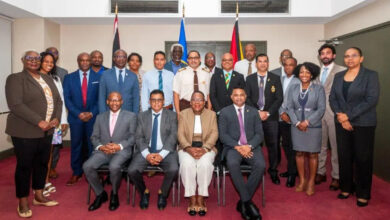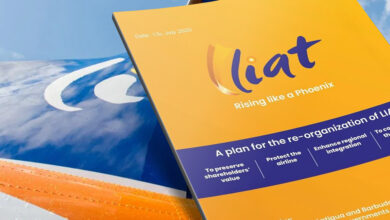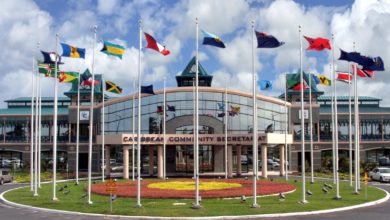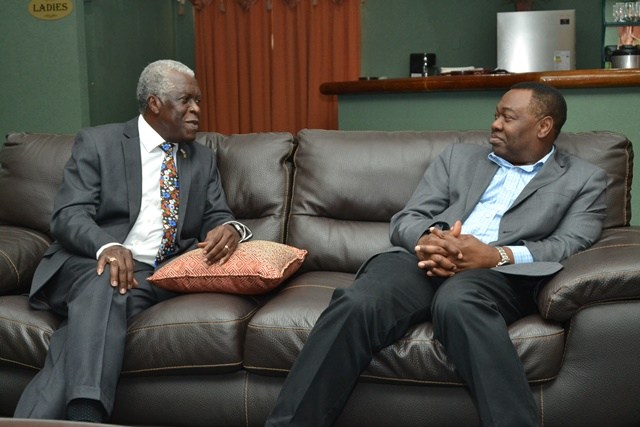As air transportation continues to be an important area of focus for the Region, the CARICOM Secretariat participated in the latest Assembly of the International Civil Aviation Organisation (ICAO), which establishes policy and reviews technical, economic and legal areas of the Organisation’s work.
The Secretariat’s Adviser, Single Market, Sectoral Programme Ms Desiree Field-Ridley and Deputy Programme Manager, Transportation, Dr. Pauline Yearwood joined over two thousand Ministers and other high ranking officials at this 39th Assembly, held at the ICAO Headquarters, Montreal, Canada.
The meeting reached an important agreement on limiting international aviation emissions. ICAO Member States, in cooperation with industry and civil society representatives achieved concensus on a global market-based measure (GMBM) known as Carbon Offsetting and Reduction Scheme for International Aviation (CORSIA).
This agreement has its genesis in the Paris Agreement on Climate Change which was adopted by Parties to the UNFCCC in December 2015, which at that time did not include mention of the international aviation sector. The ICAO Assembly responded to international pressure to design a plan for the sector’s contribution to global efforts to combat climate change with the development of the GMBM and the final adoption of CORSIA during the 39th Assembly.
In the final, agreed version, participation in both the pilot phase (2021-2023) and first phase (2024-2026) is voluntary. The subsequent phase (2027-2035) would bring all States on board, though exemptions were agreed for least developed countries (LDCs), Small Island Developing States (SIDS), landlocked developing countries (LLDCs) and States with minimal international aviation activity.
Governments of countries whose civil aviation amounts to 80% of international flights have already indicated they will participate in the voluntary phases.
Besides adopting CORSIA, the Assembly endorsed the second edition of the Global Aviation Safety Plan (GASP) and the fifth edition of the Global Air Navigation Plan (GANP). In the context of economic development, ICAO member States also considered future work on the development of a Global Air Transport Plan. In addition, the Assembly directed the ICAO Council to task the Aviation Security Panel to develop the Global Aviation Security Plan (GASeP) and present it for approval and consultations by the second half of 2017.
Prior to the start of the Assembly, the second ICAO World Aviation Forum (WAF) was convened, focusing on accelerating the implementation of capacity building for executing international civil aviation global standards and policies, such as through the No Country Left Behind (NCLB) initiative. Affirming the critical role safe, secure and efficient air transport plays in socioeconomic development, the meeting focused on cooperation to provide the finance and other resources needed for capacity building and acknowledged that NCLB will ultimately contribute to realizing international development priorities and the UN 2030 Agenda for Sustainable Development in particular.







